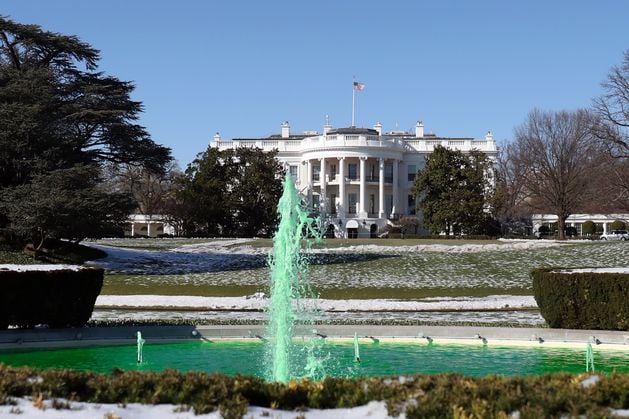The FBI is Kashed up, the world order upended, and Musk acts like a berk at CPAC
Sometimes the gap between rhetoric and action is wafer thin — Trump's abandonment of Ukraine is one such moment.

There are many elements, all fairly terrifying, that distinguish US President Donald Trump’s second term from his first. For starters, there is notably more focus and clarity of thought than the disjointed and farcical early days of his 2017 administration. But one tendency endures — Trump’s fondness for appointing people to agencies they had previously dedicated a lot of energy to undermining.
On Thursday local time, Kash Patel scraped through the US Senate confirmation process to become director of the FBI. Two Republicans, Susan Collins of Maine and Lisa Murkowski of Alaska, were holdouts, but that wasn’t enough to prevent the confirmation, which passed 51 – 49.
“I cannot imagine a worse choice,” Illinois Democrat Dick Durbin told his colleagues ahead of the vote.
As we’ve already noted, Patel is a lawyer and full-time Trump loyalist with absolutely no law enforcement or executive experience. He’s said that the FBI is part of the deep state conspiracy against Trump and his first test is whether he will make good on his promise to “shut down the FBI Hoover Building on day one and reopen it the next day as a museum of the deep state”.
Related Article Block Placeholder Article ID: 1185890
Patel has also promised that the Trump administration will “come after the people in the media who lied about American citizens, who helped Joe Biden rig presidential elections … We’re going to come after you, whether it’s criminally or civilly — we’ll figure that out”.
Patel inherits an FBI “gripped by turmoil”, as AP puts it, but operating along lines Patel would no doubt approve of. The Justice Department (DoJ) has been forcing out senior bureau officials since Trump took office … sigh … just one month ago. The DoJ further demanded the names of thousands of agents who investigated the January 6, 2021 riots at the US Capitol.
As with last time, it is worth keeping an eye on some of the euphemisms the media use to describe all this. AP designates the demand for the names of law enforcement officials investigating a specific crime as “highly unusual”, while The Washington Post cites legal experts who say the administration has “approached the red line of openly flouting court orders”.
Meanwhile, in a matter of days, certain pillars of the world order have shifted perceptibly in front of our very eyes. In the last week, Trump has claimed that Ukraine was responsible for Russia’s 2022 invasion, and in a post on his Truth Social platform on Wednesday, Trump called Ukraine President Volodymyr Zelenskyy a “dictator” who “refuses to have elections” and is good only at “playing Biden ‘like a fiddle’”.
“In the meantime,” Trump went on, “we are successfully negotiating an end to the war with Russia, something all admit only ‘TRUMP’, and the Trump administration, can do”. These negotiations, notably, did not make room for Ukraine, or any representatives from European nations.
This abandonment of an ally and upending of largely bipartisan foreign policy has, according to The New York Times, elicited some (extremely quiet) consternation from Trump’s fellow Republicans: “While some Republicans have expressed dismay at Trump’s moves and statements, there has been no concerted effort to challenge him from GOP leaders or senators who play pivotal roles in overseeing military and foreign policy in Congress.” Of course, if they were worried about Ukraine, Republicans could have done more to prevent Tulsi Gabbard from being confirmed as national intelligence head, given her stated views on Russia.
Related Article Block Placeholder Article ID: 1194941
Anne Applebaum writes in The Atlantic that all this represents the “end of the postwar world”, a final collapse of the eight-decade consensus on “alliances with other democracies [that] have been the bedrock of American foreign policy, trade policy, and cultural influence. American investments in allies’ security helped keep the peace in formerly unstable parts of the world, allowing democratic societies from Germany to Japan to prosper, by preventing predatory autocracies from destroying them. We prospered too. Thanks to its allies, the US obtained unprecedented political and economic influence in Europe and Asia, and unprecedented power everywhere else.”
Of course, whatever the merits of her analysis, that is only one interpretation of the US role in world affairs after 1945. It’s no defence of Russian tyrant Vladimir Putin, or the wisdom and morality of capitulating to him, to note that Applebaum finds no space in her piece for a discussion of US commitment to democracy in Chile, or peace in Vietnam, or in stabilising Iraq.
Surely people are thrilled at the decisive and theatrically ghoulish start the Trump administration has made? Apparently not, according to The Washington Post:
Overall, 43% of Americans say they support what the president has done during his first month in office, with 48% saying they oppose. Those who strongly oppose outnumber those who strongly support by 37% to 27%.
Predictably, this “mixed to negative” response breaks down essentially by party — nine in 10 Republicans approve of his behaviour so far — the exact same number of Democrats oppose it. Just over half of independents disapprove of Trump’s actions so far.
Meanwhile, Elon Musk, the unelected billionaire tasked with cutting back on “unaccountable elites” in the US government, has been on stage at the Conservative Political Action Conference (it comes around quicker every year), waving around a big chainsaw to, I don’t know, cut red tape with? Oh, and the White House released photos styling President Donald Trump as a king (echoing his own rhetoric) on social media, which, who knows, may join the gold-framed copy of Trump’s mugshot already on the White House walls.
Have something to say about this article? Write to us at letters@crikey.com.au. Please include your full name to be considered for publication in Crikey’s Your Say. We reserve the right to edit for length and clarity.








.jpg?width=1200&auto=webp&quality=75)













